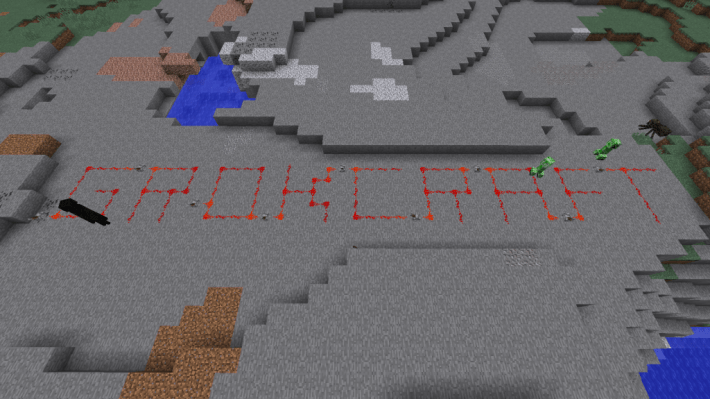
I had a powerful reminder about the prosocial nature of video games this week, and it was nowhere near a console screen. I was on my way home and ran into a Dunkin’ Donuts, in a town I’d never been to before and was unfamiliar with. I ended up waiting in a rather lengthy line and was a bit grumpy. I happened to be wearing a T-Shirt which said this:

I hadn’t worn it for ages, and had forgotten in fact I was wearing it until the cashier called out to me, “I love your shirt.” Cue the endorphins.
“Thank you,” I said, and smiled (which thanks to state bound learning probably cued my body to produce even more endorphins.) Waiting in the line seemed much more pleasant by this point. I ordered my coffee and sandwich and while waiting for them received another compliment from a customer walking by.
The third person to compliment me was a man in his 40s, scruffy and in jeans and t-shirt. “I love that game,” he said. “I haven’t played it in a while though.”
By now I was in a mood that allowed me to initiate conversations, so I asked “What are you playing nowadays.”
He proceeded to tell me that his 14 year-old daughter had gotten him into Fortnite. She had enjoyed it initially for the crafting, he said, because she really enjoyed Minecraft; but now that they were playing together she was enjoying the combat as well. His face lit up as he recounted how much fun they were having together. I told him about a study that had been done by Brigham Young that indicated increased levels of protective factors against depression. He smiled at that, and we both went on our way.
We spend so much time debating the neurological impact of playing video games that we often lose sight of another dimension; that of talking about playing video games. Talking about arts and culture is a powerful social adhesive. It identifies commonalities, allows for compliments and increased levels of engagement with others, allows us to recall exciting moments and share them. All of these activities in turn facilitate attachment, and increase a sense of well-being on the neurological level. That was the best line I’ve waited in a ages!
We need to find a way to get that message to Salty Sally the Social Worker and Morose Martin the Mental Health Counselor, whose eyes grow dull at the mention of gaming when their patients bring it up. “How much time are you playing Candy Crush?” they say, in uninviting tones, and eye such T-shirts as a clear sign of video game addiction. The next patient, who comes in with a T-Shirt of Monet’s “Water Lilies,” will get a compliment on it and no such screening for an Impressionist Art Addiction. In fact, the WHO didn’t include Art Disorder this go round at all, unless you include the art form of the video game.
In this current political climate, where we are so polarized, I wonder how many bridges (Minecraft or other) might be built if we paused to ask strangers in line if they play any games? I imagine Republicans, Democrats and Independents alike play something.
If Teams Valor, Instinct, and Mystic can all get along together raiding in Pokemon Go, perhaps we can too..
Find this post interesting? I can speak in person too: Click here for Public Speaking info & Press Kit. And, for only $4.99 you can buy my book. 🙂



























